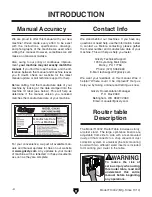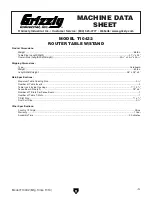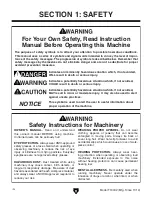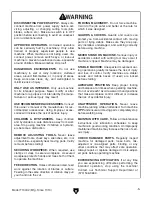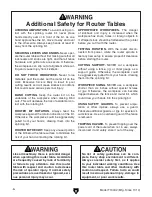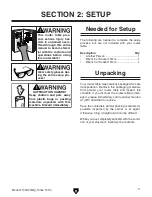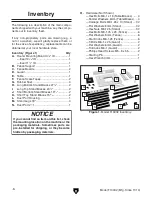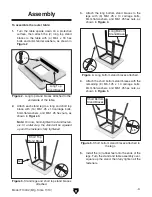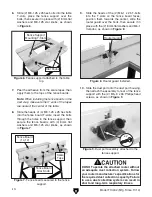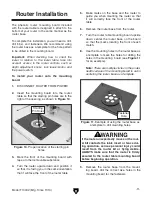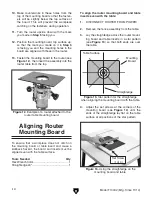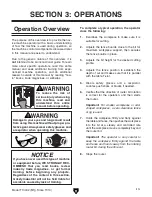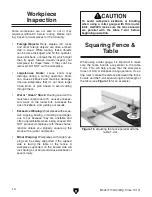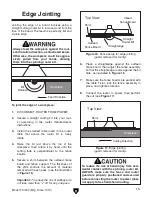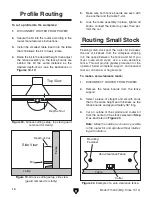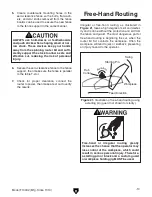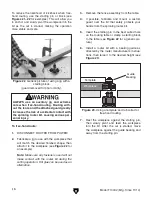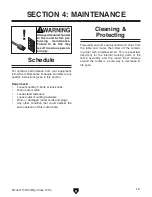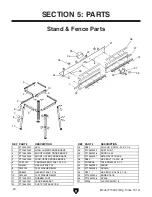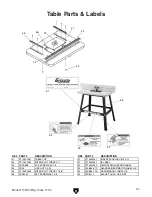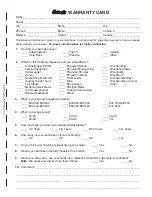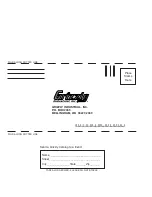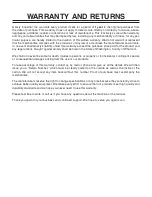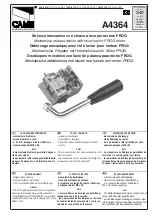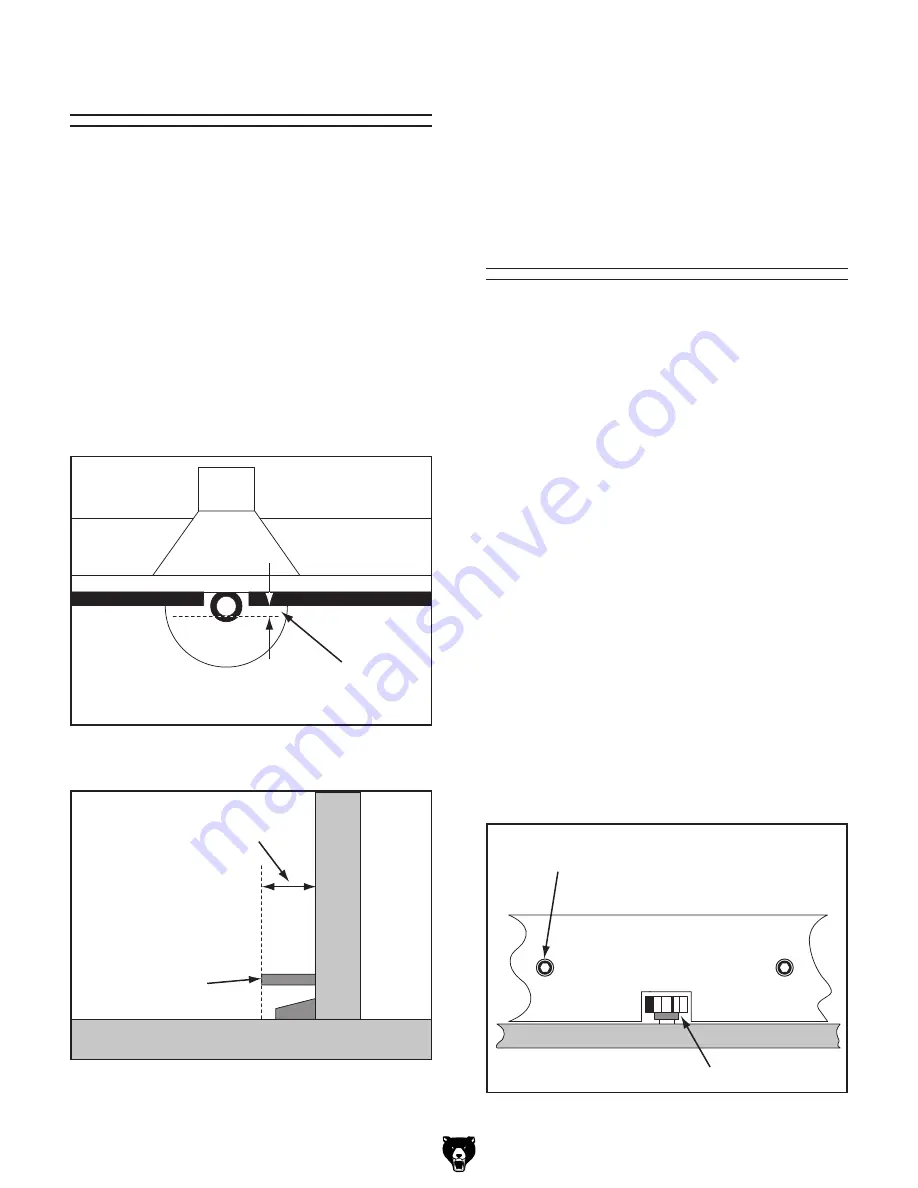
-16-
model t10432 (mfg. since 11/10)
profile Routing
To cut a profile into the workpiece:
1. disConneCt router From poWer!
2. secure the bit into the router according to the
router manufacturer's instructions.
3. install the smallest table insert into the table
that still allows the bit to freely rotate.
4. raise the bit to the desired height, then adjust
the fence assembly so the fence boards are
behind the bit the same distance as the
desired depth-of-cut (see the illustrations in
figures 18–19).
Depth-of-Cut
Top View
figure 18. groove cutting setup, top view (guard
removed for clarity).
Depth-of-Cut
Side View
Bit
Table
Fence
figure 19. groove cutting setup, side view
(guard removed for clarity).
5. make sure both fence boards are even with
one another and the table t-slot.
6. lock the fence assembly in place, tighten all
knobs, connect the router to power, then per-
form the cut.
Routing Small Stock
Feeding small stock past the router bit increases
the risk of kickback from the workpiece slipping
into the space between the fence and bit. if you
must route small stock, use a zero-clearance
fence. this will provide greater protection for the
operator, better workpiece support, and reduced
tear out on narrow or fragile stock.
To make a zero-clearance fence:
1. disConneCt router From poWer!
2. remove the fence boards from the fence
support.
3. select a piece of straight and smooth stock
that is the same height and thickness as the
fence boards and approximately 36" long.
4. Cut an outline of the spindle and router bit
from the center of the stock selected in
Step
3, as illustrated in figure 20.
Note:
Make the outline as close as possible
to the router bit and spindle without interfer-
ing with rotation.
Zero-Clearance Fence
Cutter
Table
Mounting
Fastener
figure 20. example of a zero-clearance fence.

